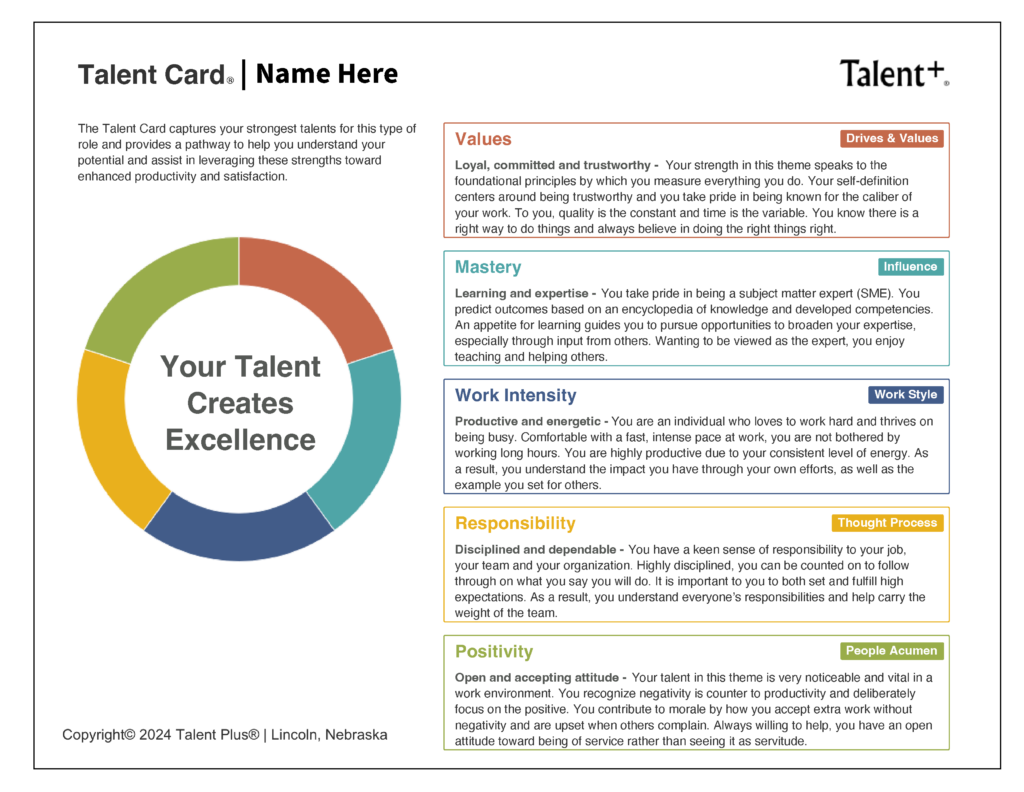
Congratulations on your promotion! It is exciting, and probably a little scary, to be promoted to a manager. Now what? Be prepared, however, because the excitement will likely give way to (at least a little) anxiety about what happens next. This is perfectly normal, but there are strategies first-time managers can use to hit the ground running! This blog will discuss strategies that first-time managers and what steps to follow to create success in their new role. We will discuss five action-items for you to take to launch your leadership career!
- Introspection
- Understand Your Strengths
- Understand Your Team
- Discussion With Your Leader
- Vision: 3-to-5 Year Career Plan
Introspection
First, take a deep breath. Although the tasks in front of you may seem daunting, remember—your organization promoted you for a reason. They see something special in you and are undoubtedly excited about your promotion.
Start by thinking about your promotion and what elevated you here. Why did you get promoted? What did they see in you? It is not unusual to experience “Imposter Syndrome.” That is, the feeling that you are not worthy of a promotion or opportunity. About 80% of the leaders I coach have experienced imposter syndrome, and they all have found methods to work through it to see how they have earned and deserve their positions.
I often encourage leaders to conduct an appreciative inquiry to understand their successes in previous roles. That is, think of when you were at your best. When were you most productive and most satisfied with your job? Don’t focus on a position title, but instead consider actual occurrences, like a project or a time when you exceeded expectations.
Now, I would like you to write down the: who, what, where, when, why, and how of event.
- Who was involved?
- What did you do?
- Where were you in your career?
- When did it happen?
- Why did it happen?
- How did you accomplish what you set out to do?
This will allow you to deeply understand what helped you succeed. Now, repeat this exercise two more times over the next two days. After completing this, you’ll see consistencies across your successes. As you map out a vision for your new position and your team, it is important for you to understand your strengths and when you are at your best.
Understand Your Strengths
When being promoted, understanding your greatest strengths can help you create a plan to use them. At Talent Plus, we encourage first-time managers to complete the Operational Manager Talent Online Assessment (TOA) to understand their managerial strengths. This gives a detailed analysis of their top five themes, or strengths, and how they can best utilize them.
This is especially important when directing others. As an associate, you likely performed the functional aspect of your job well, and now, you must lead and grow other people to execute your leader’s vision. Understanding how to harness your strengths and lead your team is vital to your success and theirs.
Next, first-time managers can plan how to employ these strengths. This helps them see their talent in action and the impact it has on their team.

Understand Your Team
Now, you have a clear understanding of when you are at your best, what your greatest managerial strengths are and how to utilize them. The third action item in your launch as a new manager is to take stock in your team. Do you understand their knowledge, skills and experience, and their talents?
This step comprises two primary steps.
- Start by having one-on-one conversations with each of your new direct reports. Above simply finding out what they are doing in their work, it is important to have an in-depth discussion about where they are successful and what challenges they face. It is also vital to understand what motivates them, and where they see themselves in their careers. The more you can align your leadership direction with their careers and goals, the more successful they—and you—will be.
- It is imperative to understand their strengths and weaknesses, too. After they complete a strength-based assessment (similar to the one discussed above), you will be able to focus on what they do best and help them build compensatory strategies for weaknesses. Based on their Top 5 themes, you can also create a Talent Grid. This at-a-glance tool shows where your team is strong and potential weak points.

Discussion with Your Leader
The fourth action item of becoming a first-time manager is to have an in-depth discussion with your new leader. Discuss with them your goals for the team and any challenges you believe you face.
One-on-one time is appropriate, or you can work with a third-party coach who can help guide your conversation to discover areas where you and your new leader will work best together and possible hiccups. It’s important to leave this conversation with three actionable items.
Career Vision
The fifth and final step for you as a new manager is to consider where you want to be in 3 to 5 years. Where do you see your career going? How does this opportunity help you reach your career goals?
It may sound early, but it is important for you to understand how this opportunity fits into your larger career goals. This will help you shape the vision for your team and the long-term goals for your career. Spend time looking ahead and write a page or series of bullet-points about your thoughts. Discuss the results with a mentor.
Set the Stage For Success
Now that we’ve explored five important action items for first-time managers, it’s up to you to implement them.
By spending time on each of these steps and creating outcomes based on what you learn, you will launch your career in leadership and open up future opportunities. Of course, this is an exciting and nerve-racking time, and most first-time managers experience it. By having a clear plan, you will set yourself up for success.
Scott C. Whiteford, Ph.D.
Scott C. Whiteford, Ph.D. is the Director of Leadership Analytics at Talent Plus where his role is to partner with, listen to and find solutions for our clients, their teams and organization. With an emphasis on strengths, through selection and development, he helps our clients find success on their Talent-Based Journey.
“I focus on the strength management approach to help grow leaders and improve team and organization cultures.” – Scott Whiteford
Talents: Relationship, Ego Drive, Focus, Conceptualization and Intelligence
Latest Posts: Blog

Blog February 02, 2026
Managing Up and Down: Using Talent to Strengthen Every Working Relationship
Managing up and down is one of the most valuable skills you can have. Learn how understanding talent can make managing in both directions much easier.
Read More
Blog November 04, 2025
Top Performers, Explained: Karl Giuseffi’s Blueprint to Thrive
Explore insights from Karl Giuseffi on how talent science enhances workplace success and team performance.
Read More
Blog October 22, 2025
Practical Ways to Give Feedback That Strengthens Talent and Growth
Learn how to give good feedback that inspires and builds trust among your team while enhancing their natural strengths.
Read More
Blog September 25, 2025
What Do We Really Mean When We Talk About Talent?
Unlock the secrets of talent in the workforce. Learn how to identify inherent abilities for excellence in your team.
Read More
Blog July 08, 2025
How to Manage Difficult People
Master how to manage difficult people at work with six effective strategies for maintaining productivity and engagement.
Read More
Selection April 28, 2025
The Science of Talent Reduces Turnover in Credit Unions
Learn how Credit Unions use Talent Plus Solutions to decrease turnover, better engage employees and increase performance.
Read More

